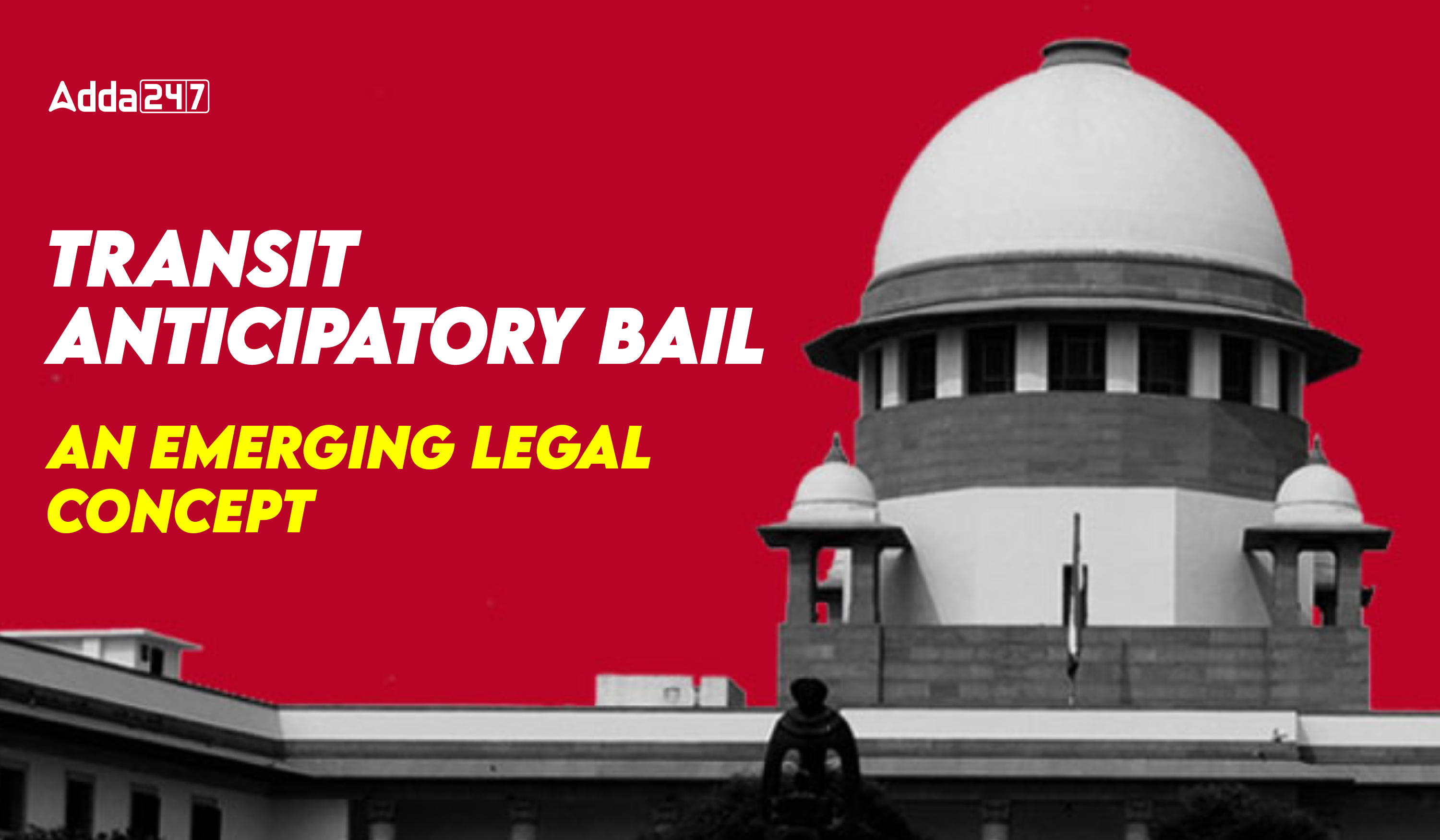Table of Contents
Transit anticipatory bail is a significant yet evolving concept in the Indian judicial system, designed to address the complexities of cross-jurisdictional arrests. Although the term is not explicitly defined in the Code of Criminal Procedure (CrPC), 1973, it has been judicially interpreted to provide temporary relief to individuals apprehending arrest in a State different from where they reside. This article explores the concept, judicial precedents, and procedural aspects of transit anticipatory bail.
What is Transit Anticipatory Bail?
Transit anticipatory bail is a legal provision that allows an individual to seek protection from arrest in a State where the alleged offense was not committed, ensuring they can safely reach the appropriate Court with territorial jurisdiction. It is essentially a form of pre-arrest bail granted by a Court outside the jurisdiction of the crime, providing temporary relief until the accused can approach the competent Court.
Judicial Origin and Development of Transit Anticipatory Bail
The concept of transit anticipatory bail emerged from judicial interpretations rather than legislative provisions. The Supreme Court of India in State of Assam v. Brojen Gogoi (1998) laid the groundwork for this legal innovation, emphasizing the need to protect individuals from arbitrary arrests when they are far from the jurisdiction where the FIR is registered.
Recent Supreme Court Ruling on Transit Anticipatory Bail
In the landmark case of Priya Indoria vs State of Karnataka and Ors (2023), the Supreme Court ruled that Sessions Courts or High Courts could grant transit anticipatory bail even if the FIR is registered outside their jurisdiction. The Court underscored the Constitutional imperative of protecting citizens’ right to life and personal liberty under Article 21 of the Constitution of India.
Conditions for Granting Transit Anticipatory Bail
The Supreme Court in its recent ruling laid down specific conditions for granting transit anticipatory bail:
1. Notice Requirement: The investigating officer and public prosecutor must be notified on the first hearing.
2. Reasoned Order: The order must provide detailed reasons explaining the apprehension of inter-state arrest and its potential impact on the ongoing investigation.
3. Territorial Connection: There must be a territorial nexus between the accused and the Court’s jurisdiction, such as residence or place of work.
4. Exceptional Circumstances: Transit anticipatory bail should be granted only in exceptional and compelling circumstances to prevent irreparable harm.
Key Judicial Precedents
- Shantanu Shivlal Muluk vs State of Maharashtra (2021)
The Bombay High Court granted transit anticipatory bail to Shantanu Muluk in connection with the ‘toolkit’ case, highlighting that apprehension of arrest is a key factor. The Court provided temporary protection, allowing the accused to approach the appropriate jurisdictional Court.
- Honey Preet Insan v. State & Ors (2017)
The Delhi High Court denied transit anticipatory bail to Honey Preet Insan, emphasizing the importance of being a bona fide resident within the Court’s jurisdiction. This case illustrated the need for a genuine connection to the Court’s territorial limits to prevent misuse of the provision.
Procedure and Implementation of Transit Anticipatory Bail
When seeking transit anticipatory bail, the applicant must demonstrate a reasonable apprehension of arrest and their inability to seek bail from the Court with territorial jurisdiction over the FIR. The Court grants temporary protection, enabling the accused to approach the appropriate Court without the fear of immediate arrest.
Challenges and Considerations of Transit Anticipatory Bail
Transit anticipatory bail aims to balance individual liberty with the integrity of the judicial process. However, it also presents challenges such as potential forum shopping, where accused individuals might seek favorable jurisdictions for interim relief. Courts must carefully evaluate the territorial connection and bona fide nature of the application to prevent abuse.
Conclusion
Transit anticipatory bail is a vital legal remedy that enhances access to justice by providing temporary protection from arrest across jurisdictions. While it remains a judicially interpreted concept, its application continues to evolve, ensuring the protection of personal liberty in an increasingly interconnected legal landscape. The Supreme Court’s recent rulings have clarified its scope and conditions, contributing to a more nuanced understanding of this essential legal provision.



 TSPSC Group 1 Question Paper 2024, Downl...
TSPSC Group 1 Question Paper 2024, Downl...
 TSPSC Group 1 Answer key 2024 Out, Downl...
TSPSC Group 1 Answer key 2024 Out, Downl...
 UPSC Prelims 2024 Question Paper, Downlo...
UPSC Prelims 2024 Question Paper, Downlo...




